By Debbie Burke
Unfamiliar words always catch my attention. Since words are a writer’s most important tool, I figure we can’t have too many in our toolbox.
Some words are just plain fun, either because of their sound or their meaning. Today, let’s play with several I recently ran across.
Lagniappe
TKZ’s own Joe Hartlaub used this term in a recent comment. What the heck is lagniappe, I wondered.
A quick Wikipedia search revealed the definition of lagniappe as “a small gift given to a customer by a merchant at the time of a purchase” (such as a 13th doughnut on purchase of a dozen), or more broadly, “something given or obtained gratuitously or by way of good measure.”
Mark Twain collected the word as a souvenir during a journey. In Life on the Mississippi he wrote: “We picked up one excellent word – a word worth travelling to New Orleans to get; a nice limber, expressive, handy word – ‘Lagniappe.’ They pronounce it lanny-yap … When a child or a servant buys something in a shop – or even the mayor or governor, for aught I know – he finishes the operation by saying, – ‘Give me something for lagniappe.‘ The shopman always responds; gives the child a bit of liquorice-root.”
According to Wikipedia, the word origin is “from the Louisiana French adapting a Quechua word brought in to New Orleans by the Spanish Creoles.”
The use of unusual words in fiction can be a risk because the writer doesn’t want to pull the reader out of the story to check the dictionary. In olden days, we had find a Merriam-Webster and page through the thick volume. However, with instant internet access, looking up an unfamiliar word is easy. Sometimes, learning a new word is a value-added bonus in the book…like a lagniappe.
Matryoshka doll
Have you seen Russian nesting dolls, also known as Matryoshka dolls? Open the first doll to find a smaller second one inside; open the second one to find an even smaller third doll inside; and so on until the last and tiniest doll is revealed. Originally made as children’s toys, they became popular mementos for tourists visiting Russia.
The root of Matryoshka means mother or maternal. According to Legomenan: “the Matryoshka doll’s shape is round and elongated like an egg, a popular symbol of fertility and reproduction since ancient times. Like an egg, out of the Matryoshka stacking doll life emerges in symbolic form. The biggest nesting doll births the smaller ones, just as the grandmother or babushka gives life to the younger generations of her family, symbolized through the full family of stacking dolls of decreasing sizes.”
The Matryoshka doll seems a good analogy for mystery plots. The reader opens the first clue that leads to hidden information that leads to more clues until the most deeply hidden information reveals the ultimate solution to the puzzle.
Mondegreen
This is a mishearing of a phrase, often in song lyrics. Author Sylvia Wright coined the term after she misheard the words of an old Scottish ballad.
Ye Highlands and Ye Lowlands
Oh where hae you been?
They hae slay the Earl of Murray,
And Lady Mondegreen.
There is no Lady Mondegreen. The actual words of the last line are “and laid him on the green.”
Check out this site for a funny collection of Mondegreens from popular song lyrics (some are R-rated).
Led Zeppelin’s Stairway to Heaven
Actual lyric: “and as we wind on down the road, our shadows taller than our souls.”
Mondegreen: “and there’s a wino down the road – I should have stolen Oreos.”
Madonna’s Material Girl
Actual lyric: “we are living in a material world, and I am a material girl.”
Mondegreen: “we are living in a Cheerio world, and I am a Cheerio girl.”
Crystal Gayle’s Don’t It Make My Brown Eyes Blue.
Mondegreen: “Doughnuts make my brown eyes blue.”
Pat Benatar’s Hit Me With Your Best Shot:
Mondegreen: “Hit me with your pet shark.”
Jose Feliciano’s Feliz Navidad:
Mondegreen: “Police have a dog.”
Gazump
Tracey, a TKZ reader in the UK, introduced me to this term. It is British slang for “when a seller (especially of property) accepts a verbal offer (a promise to purchase) on the property from one potential buyer, but then accepts a higher offer from someone else. It can also refer to the seller raising the asking price or asking for more money at the last minute, after previously verbally agreeing to a lower one.” – Wikipedia.
No one wants to be “gazumped” but it’s sure a fun word to say.
Working with words is a writer’s job but playing with words is our pleasure.
~~~
TKZers: What is your favorite unusual word? If you know the origin, please share that, also.
~~~
Four Books Four Bucks – All four books in Debbie Burke’s thriller series are on sale from July 7 to July 14. Buy one for $.99 or buy all four for the regular price of one book.

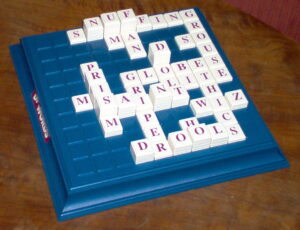
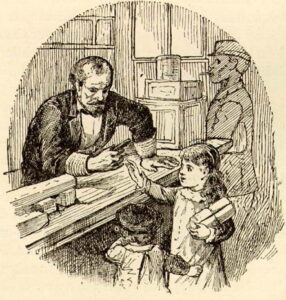
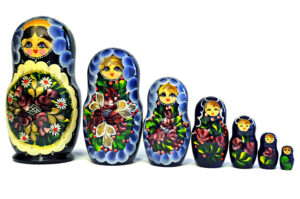
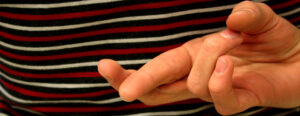
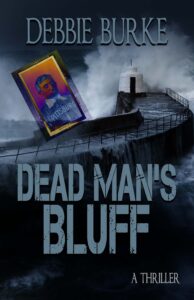
I’ve been a reader since, well, forever it seems, and as a kid was often sent downstairs to Pop’s library-esque Webster’s whenever a word was misused at the dinner table and told to bring back the meaning(s) of the word misspoken.
I’ve heard/read lagniappe beaucoups times, especially in and around New Orleans, but didn’t know the precise meaning until this morning, so thank you, Ma’am…
While I’d heard about the misheard song lyrics, I didn’t know the term for them ’til just now, so thanks again…
Another famous one is in Jimi Hendrix’s Purple Haze: “‘Scuse me while I kiss the sky” is often heard as “‘Scuse me while I kiss this guy…”
…and one of “mine” is from a deep-cut song by the band Chicago that opened with what I heard as, “Maître d’s will seat me, knowing what I spend…” – when in actuality it was “Later days will see me, knowing where I stand…” (I have since “appropriated” this Mondegreen, but not quite found a use a for it all these years later…)
Once again, TKZ has dropped a lagniappe in my lap…
And I forgot to add… I learned yesterday (how timely?) the term for the cardboard sleeve you get on a to-go paper coffee cup is called a zarf… and it’s a term that’s couple of hundred years old – probably Arabic in origin – and originally a decorative metal holder for hot, ceramic, cups or mugs… (though it DOES sound like a sound affect word used by the late MAD Magazine’s late Don Martin… ?)
George, I love that word. I first came across it by accident while playing Words With Friends, where I generally throw random tiles on the board to see if they’re acceptable words.
My mom’s German, and they had filigreed zarfs (although I never heard them refer to them as such) for their glass coffee cups.
Discovered it playing Scrabble once. The Z was on a triple word, and I was able to use the F twice. Cleaned up on that one against my daughters. 🙂
Thank you, George. Zarf is a new one to me.
What great lessons you learned at the dinner table.
That story brings to mind Rowan and Martin: “Look that up in your Funk & Wagnalls!”
In this sharing of unusual words, we’re all receiving lagniappes and no one got gazumped.
I heard of zarfs back when I was a freshman in high school. It was in the Scrabble word book in 1957.
Try working it into an American conversation in my part of the country.
Thanks for this post. My late father loved words. I don’t think there’s a term for the way he’d play with people’s names. He’d say, “Jose Ferrer and his brother ComeUp.”
If he didn’t know a word, he’d make one up, and we always accepted them as real.
I learned lagniappe at a conference in Baton Rouge when they gave us extra perks throughout.
And mondegreen came up as a dictionary.com word of the day recently. My favorite there is CCR’s “There’s a bathroom on the right.”
Another “wordplay” I like (also discovered via the Word of the Day) is tmesis. I’ve been known to insert them into my writing from time to time.
Terry, you sent me to Google to look up “tmesis.” An abso-blooming-lutely great addition to this collection of weird words!
And my Facebook memory for today was the eulogy I wrote for my father. Synchronicity?
Debbie, I always learn something from your posts and today’s is no exception. Mondegreen makes me think of Louie, Louie way back in the 1960s. We all sang along, but I still don’t know if the real lyrics were as suggestive as we pretended.
Ann, see my comment farther down the string.
Great fun and educational post, Deb. I like “notionate” (stubborn, strong-willed).
Ann, a band of local high school guys played “Louie, Louie” at our 1965 jr. high student talent show. The guys got a 3 day suspension from school. (which might have been their plan all along) Fun fact: The FBI investigated the song for 2 years trying to figured out if the muddles lyrics before concluding it was not possible to determine whether this recording is obscene.
Notionate is a good one, Deb. You always come up with fun southern-isms.
My family always played with words, too, including making them up along the way. As to lagniappe, I used that in one of my books when I had a character from New Orleans. Needed some “local color” and Had to find a way to incorporate it!
Karla, N’Awlins is a vocabulary treasure trove. No wonder so many memorable books are set there.
I learned a new word, today, on GoComic’s “Ten Cats” cartoon. “Tongle.” Urban Dictionary defines it as “Any Irregular Polygon, usually of a daft or impractical shape. Also used to describe someone who is a complete and total arse.” The noun became a verb, and its definition was used incorrectly in the comic so the cartoonist should have looked it up, too.
One of the first times I heard “Memory” from CATS was at my gym with its less than perfect accoustics. I heard “wizard leaves” instead of “withered leaves.” That became “Wizard Sounds” in my head, and that became the title of my third book, sadly never published.
Wizard Leaves sounds like a great fantasy book title, Marilynn. Don’t give up hope–it may be published someday.
Ann, I remember Louie, Louie. We kids thought we were really putting one over on adults.
Here are the actual lyrics: https://www.youtube.com/watch?v=wx-8_GI4d2c
And the mythical mondegreen lyrics: https://www.youtube.com/watch?v=AaRqqldANEI
And, last but not least, here’s the 118 page investigation by the FBI of the lyrics, including a letter from a concerned parent to then-Attorney General Robert Kennedy: https://apps.npr.org/documents/document.html?id=2069715-louie-louie
Oops, this reply was supposed to be to Ann but got shuffled down.
You are a super-researcher!
I look forward to reading the lyrics without my mother looking over my shoulder.
I have a list. Here are a few. (Fun post, Debbie!) Always ready to add a few to my list. 🙂
SHAVIE: Rare Scottish word meaning trick or prank.
GADZOOKERY: The use or overuse of period-specific or archaic expressions, as in a historical novel. British
BUNGLESOME: Clumsy, awkward. American 1885-90
KRUMMOLZ: A forest of stunted trees near the timber line on a mountain. German, crooked wood
KEEK: To peep; to look furtively. From Dutch and Middle Low German kiken-“to look”
And my favorite so far:
WITHERSHINS: Middle, low German; weddersins. In a direction contrary to the natural one, esp. contrary to the apparent course of the sun or counterclockwise; considered as unlucky or causing disaster.
That’s an impressive collection, Deb. Thanks!
These are awesome, Deb!
I had heard of it as widdershins! Interesting!
That’s interesting! I use the last one often (speaking, not writing, and often sarcastically) but I learned it as “wiDDershins.” I honestly don’t think I’ve ever seen it written with the “th.”
A great lot of German in the familial tree, but I don’t think that’s where I got the “d” version.
I’ll have to google the etymology on that one!
Gazump is NOT an unusual word–not if you lived in my neighborhood and went to the same grade school I did.
Hey, Gazump! It was a synonym to rumsbottom, gedunk, and blatz. Now all of these words did not have meaning by definition. They had meaning by tone of voice. Who knows where they came from? I will say that blatz was probably from the beer, so gedunk probably came from someone who was in the U.S. Navy, and gazump may have landed here from England by way of someone’s Dad who bombed the rumsbottoms into smithereens.
Who knows?
Jim, great examples and excellent point about how the tone of voice changes the meaning of a word. Who knows how many insults were invented on school playgrounds?
I know Lagniappe because it’s the name of my favorite restaurant here in Milwaukee. After you’ve ordered and before your food arrives, your server brings you a small 2-bite special from the chef, usually some kind of quiche. They present it saying, this is your “little special extra from the chef. Enjoy.”
Maggie, that restaurant is smart–pleasing customers so they come back is how to stay in business.
When I was a kid, a restaurant in San Diego named Consuelo’s would bring a crisp quesadilla (no extra charge) to each table. Sometimes that was the best part of the meal and one reason I pestered my parents to take us there often.
Fun post, Debbie! My mind is busy working on my WIP at the moment, so I can’t think of an unusual word that hasn’t been mentioned. If that changes, I’ll be back. 🙂
Sue, looking forward to your new female serial killer book!
OZZIE Word quiz:
1. What does AVRO mean? A. Japanese car B. Type of dog food C. Afternoon
2. What’s a TINNY? A. A very small person B. Boat C. Aluminum beer can
3. What”s a KIWI? A. Small flightless bird B.New name for gooseberrry C.New Zealander
4. What does MACCA’S mean? A. Trendy raincoat B. Moslem Holy site C.McDonald’s restaurants
5. What is a ROO? A.Royal Ordinance Observer corps B. Right on Ollie- reference to Australian Rules football C. Large hopping marsupial
6. What is a BILLIBONG? A.smoking pipe used for marijuana B.Center half on Rugby team B. A fresh water pond
7. What is a BOTTLE-O? A. Australian hair dye B. Strong laxative C. Liquor store, sometimes drive in
8.What is a DIDGERIDOO? A. Slang for backhoe B. Aboriginal wind instrument from a small hollowed log C. Crowd chant at a football match
9. What is DINKUM? A.Small coconut flavored cake best with tea B.Metal fishing line with attached hook C.Means something is fair and real
10. What is FANNY? A.19th century famous actress B. Small pack to carry money strapped on the waist C. Naughty word for female genitals
Hedley, thank you for a fun quiz. I recognized several from that old song, Tie Me Kangaroo Down Sport. The rest I had to look up. TKZ readers teach me so much!
Hi Debbie,
Such a fun post! Mondegreen was one I discovered a few years ago. I was a big ELO fan as a teen–I was sure at the time their song “Evil Woman” was “Medieval Woman,” which puts an entirely different spin on the meaning.
Gobsmacked is a personally favorite, a British word meaning to experience intense surprise, as though your gob (mouth) was smacked, dating back at least to the 1930s. It’s especially my favorite after my U.K. advance reviewer used it to tell me how much she loved my novel Gremlin Night after she read last fall. What a way to begin an email 😀
Dale, I also love that word b/c sounds just like it feels. You must have been gobsmacked to receive that great review.
Ugh–“read it” last fall. Someone needs to do a post on “missing words,” the bane of this writer’s copy editing existence 😛
Re Louie, Louie — Way, way back in the day, I knew the Kingsmen. A friend of mine joined the guys after their glory days. The story they told me is the same one reported in The New Yorker. They enjoyed the publicity all the kerfuffle brought. Sort of like, I don’t care what they say or write about me as long as they spell my name right.
How fun, Laurie. When the Kingsmen recorded that song, I wonder if they ever expected people would still be talking about it almost 60 years later.
Debbie, Thanks to you for the great words and all the others added by commenters!
I have a special word to add to the mix, one that I’ve written about several times. Here’s an excerpt of the explanation from my blog article that was written to accompany an interview with James Scott Bell:
“In the 1980’s, my husband, Frank, invented and patented a medical imaging device which he named the Kinestatic Charge Detector (KCD). If you’re interested, you can read the abstract of the original paper at https://aapm.onlinelibrary.wiley.com/doi/abs/10.1118/1.595693
The KCD worked on the principle of ions moving in one frame of reference, but stationary in another. To illustrate this principle, Frank coined the word “kinestatic” by combining “kinetic” (moving) with “static” (still). What a great word! To our knowledge, this word had never been used prior to his conceiving it.
Frank has often compared kinestasis (the noun form of the word) with walking up a down escalator. You’re moving in relation to the steps, but you’re stationary in relation to the outside world.
There are lots of other situations in everyday life that are kinestatic. Do you walk on a treadmill? You’re kinestatic. In another context, do you ever find yourself rushing around all day doing things but accomplishing nothing? Kinestasis!”
We even met an assistant to the editor of the OED while on a tour bus in Oxford and asked about the possibility of having “kinestatic” added to the OED. She suggested that Frank send her the history of the word and examples of its use. Since it was only used in academic circles at the time, it was not included in the dictionary. ?
However, I used the word in my novel, “The Watch on the Fencepost”, and I intend to include it in every other book I write. Sooner or later they’re gonna have to put it in the dictionary. ?
Kay, kinestatic definitely belongs in the dictionary. Did you know there’s a musical group called the Kinestatics? https://www.youtube.com/watch?v=uAMrTzsQVX4&list=PLUork8xqmS0wucLGDLxbYJKV5yrdzovba&index=1
Interesting name for a music group. I wonder how they came up with it. (I watched the music video –I’m pretty sure they didn’t use Frank’s paper as their inspiration. ?)
What a fun post! I’m diverging from my regular thrillers and I am writing a fantasy. I was looking for a new word to describe an animal and found lollop. I’d heard it once before, but actually getting to use it is more fun.
You all may have heard it before, but for those unfamiliar with the term: Lollop: Verb
To walk or move with a bouncing or undulating motion and at an unhurried pace.
(obsolete) To act lazily, loll, lie around.
Cecilia, switching genres provides a great opportunity to discover new words that fit. Expanding horizons is what writing is all about.
So, would lollop describe Marilyn Monroe’s walk?
Funny you should mention lollop, Cecelia – yesterday I used ‘LOL’ to my daughter for her funny text, but it auto-corrected to lollop. Coincidence? I don’t think so. Mucking about with texts when you should be editing is now officially defined as lolloping.
I don’t know about favorite words, exactly, but I do like writing YA stories whose main characters are kids with Brobdingnagian vocabularies. One, a self-described innocent young girl, had no idea what French kissing was but knew the definition of coitus. This sort of thing happened to a lot of us when we were kids. Plenty of time spent with books, not enough time spent in the gutter.
Another character used a kind of Mondegreen to win a game of Twister. His opponents were at the tender age where words that sound off-color are hysterically funny even if you say them without context. Words like “emulate,” “fungible,” and (my favorite) “innuendo.”
This sort of thing becomes a running gag pretty easily.
“Plenty of time spent with books, not enough time spent in the gutter.”
Very funny and true, Robert.
For your Twister game, how about “matriculate”?
“Matriculate!” Excellent. And it reminded me of one I used to great effect in high school: “masticate.”
LOL!
Great post, Debbie! I consider my vocabulary to be fairly wide and deep but I’m always looking for new words. There are plenty to be had here. Thanks!
Thanks, Joe. You’re the one who gave me the idea for this post with “lagniappe.”
What a lot of great new words from TKZ readers!
Here’s a word that I used in an erotic (but tasteful) poem that I wrote: dishabille.
The word, as you may have already guessed, has a French origin, For those who are unfamiliar with the word, it means “the state of being only partly or scantily clothed.” (Oh, and the poem was about a plate of spaghetti).
If I have time, I’ll post a few more later. Love words. Great post!
Thanks, Joanne! Dishabille is not only descriptive but sounds sexy, too!
Just uncovered another great Mondegreen:
Sly and the Family Stone: “Thank you for letinmebemiceelf again.”